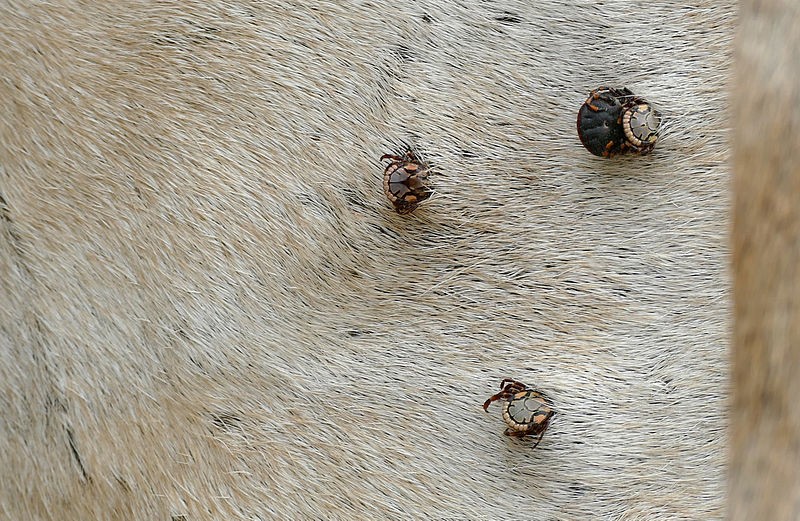Farmers urged to be weary of bont tick
Kebone Laetsang | Thursday April 18, 2019 13:06


The ministry believes the cases are likely to be much higher in the ongoing investigations.
The ministry urges farmers and the public to take care of their livestock to prevent the swell of the bont tick and tick borne cases, as the diseases terrorise their farm animals in the North West District.
The related diseases include heart water and dermatophilosis (locally known as senkobo) that were found in different places such as Gumare, Tubu, Etsha and Nokaneng extension areas.
Farmers and the general public are therefore encouraged to report any suspected affected animals. The bont tink transmits many diseases to livestock, but presently dermatophilosis is more prevalent. It presents with characteristics of nodular lesions on the skin, which may become infected, necrotic and debilitating.
Director of Veterinary Services Letlhogile Modisa said that farmers are advised that movement of animals out of the affected areas is discouraged, and may only be allowed with permits after the animals have been dipped. This is to curb the spread of the disease to unaffected animals, as it is crucial to keep them safe.
Affected animals should not be moved until they have fully recovered. All the animals that may have been from the affected area should be traced, treated and dipped immediately.
“Farmers are encouraged to take full advantage of the ongoing free treatments carried out by the Ministry of Agricultural Development and Food Security. Farmers are expected to routinely dip their animals as part of the management procedure,” Modisa stated.
Deputy director of Veterinary Services Kefentse Motshegwa alluded to the fact that the situation remains unstable, but is expected to stabilise as farmers respond positively to free dipping and treatment of livestock
Motshegwa mentioned that government will support farmers with treatment and dipping until the situation with the disease is under control. Moving forward, Motshegwa said, farmers are urged to integrate dipping of animals as part of the normal animal husbandry practice.
